“A Universe Beyond Romance”
This article contains image descriptions in the captions to help those with visual impairments.
Max Miechowski transports us to the nostalgic British seaside in A Big Fat Sky
What springs to mind at the mention of the British seaside? Days spent at the beach as a child? The nostalgic noises of arcade games and smells of fish and chips? Or maybe the more recent decline some of these areas have faced? All too often nowadays imagery and reportage focuses on the later, highlighting it as lesser and looked down upon. A Big Fat Sky goes against this frequent narrative, standing up for the beauty and magic the east coast of England has to offer. “Within the documentary tradition this part of the country is so often depicted as tacky or gritty, and as something to be made fun of. I wanted to paint a much softer and more delicate picture, showing that the quirkiness of the British coast is actually very beautiful.”
With a natural flow, genuine interest, and dreamy aesthetic, the project explores the different layers of the British seaside, celebrating it and capturing the beautiful everyday. It feels like A Big Fat Sky exists in a time somewhere between the past and the present. At first, you can’t quite put your finger on when it was shot as the images are timeless and simultaneously in a dreamy world of their own.
As well as showing the beauty of the east coast landscape, Miechowski’s body of work provides us with a visual breath of fresh air in a time where it is all too easy to feel trapped, “the coast provides a break for all of us”. Reminding us all of how beneficial it is to not only escape our hectic built up lives, but revel in childhood nostalgia with a more positive outlook.
Miechowski shares with us the organic process in which A Big Fat Sky came about, his personal pulls to explore this part of Britain, and how he approaches and creates connections with subjects. He also hints at the unfamiliar path his next project is leading him.
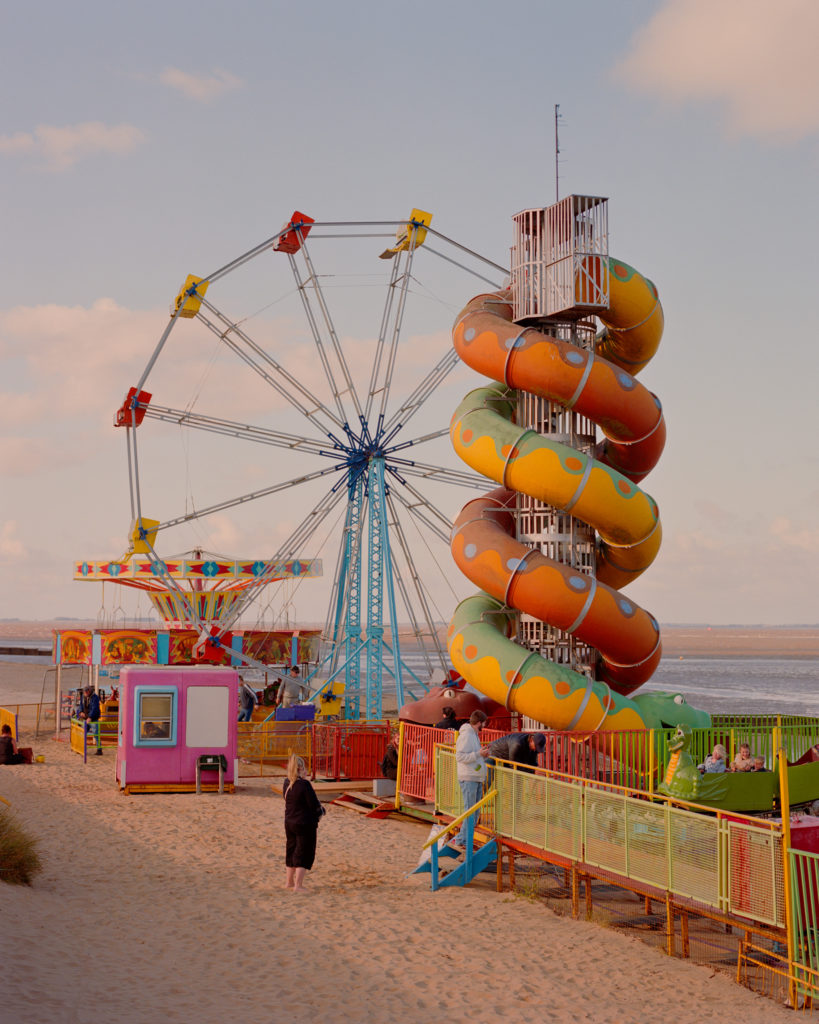
What was your aim and intentions behind A Big Fat Sky?
My previous projects were focused heavily on life in London, so I was keen to mix it up a little and get out of the city. I wanted to experience the more open landscapes and the different pace of life that I was used to growing up. I decided to travel along the British east coast with the intention of revisiting holiday spots from my childhood and simply enjoying exploring this part of the country with my camera. I really like to work in this way - picking somewhere to go, and just making images. I find that ideas often come to me whilst shooting, and slowly I can begin to piece the bigger story together.
Your aesthetic and choice of colour palette hints at nostalgia and memory. Do you have a personal and emotional pull to the East Coast of Britain which drove the project?Growing up in Lincolnshire my family would often take trips to Skegness, or little holidays to the Norfolk and Yorkshire coast. My grandad also used to keep an old boat at Southwold. I don’t remember seeing it, but I have pictures of it now. I have a really early memory of a holiday to Wells-Next-The-Sea, fishing for crabs and having my first can of Dandelion & Burdock. It was definitely these memories that inspired me to visit the coast originally, and the contrasts between them and my experiences now that kept me interested in going back.
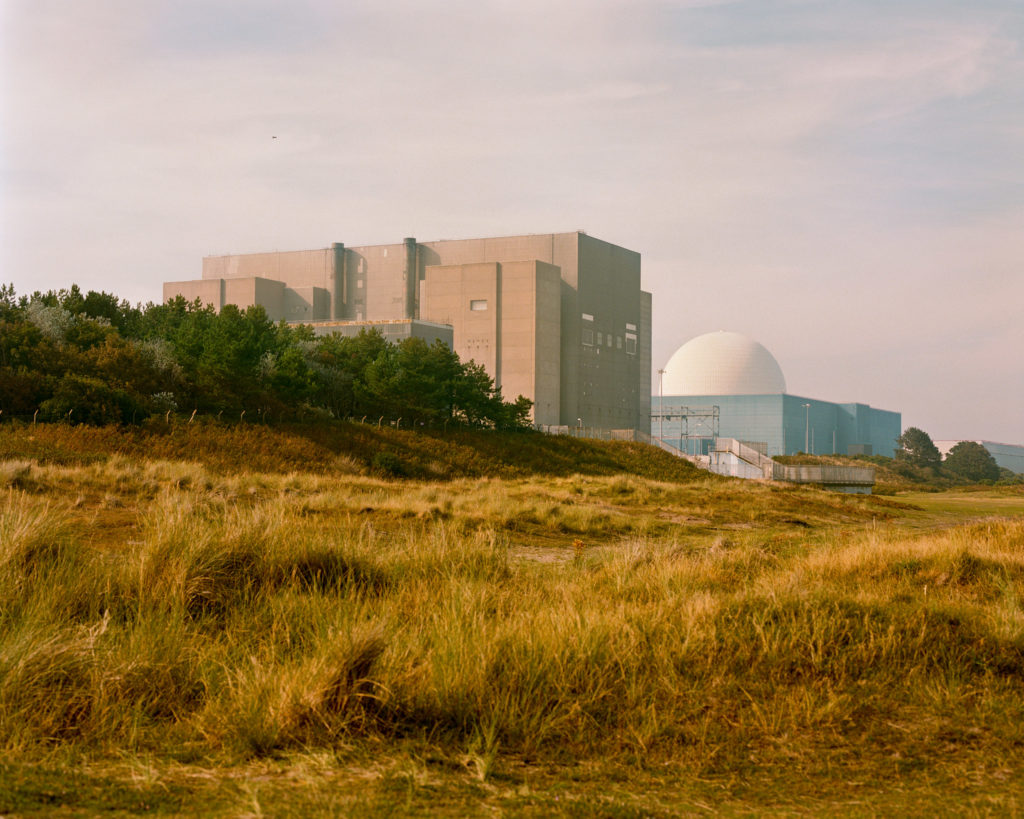
Something synonymous with the British Seaside as a whole is the idea that it is frozen in time. Both in negative and more nostalgic ways, be it become run down and overlooked or grasping onto its heyday. Your depiction of the East Coast reflects the notion of it being frozen in time, the images feel like they could have been taken today or twenty years ago almost. Was this timeless effect intentional, or organic?
I didn’t specifically intend for the images to feel timeless, but I did want them to feel different to other images I had seen on the coast. Within the documentary tradition this part of the country is so often depicted as tacky or gritty, and as something to be made fun of. I wanted to paint a much softer and more delicate picture, showing that the quirkiness of the British coast is actually very beautiful.
In comparison to London these towns and communities can feel a little like they’re frozen in time, and it may well feel that way long into the future. The coast provides a break for all of us, to get away from the city and to get some fresh air, but to also be reminded of our time as kids when things seemed a little more simple.
The British seaside and the concept of the staycation is more prominent now than ever, do you think from your experience and time spent around the coast that the influx of tourists will pose helpful or detrimental to these coastal communities?
As with the vast majority of places around the world, the global pandemic has impacted life on the East Coast in a variety of ways. Some of these are immediately obvious, while others may become more clear over the coming years. The towns that rely heavily on summer tourism were at first hit hard by the lack of visitors during the lockdown, but then inundated with more than it could accommodate for once it began to lift. A glimmer of hope for these towns is that they will begin to receive a more regular and manageable flow of British holidaymakers in the future, causing a long term boost to the local economy.
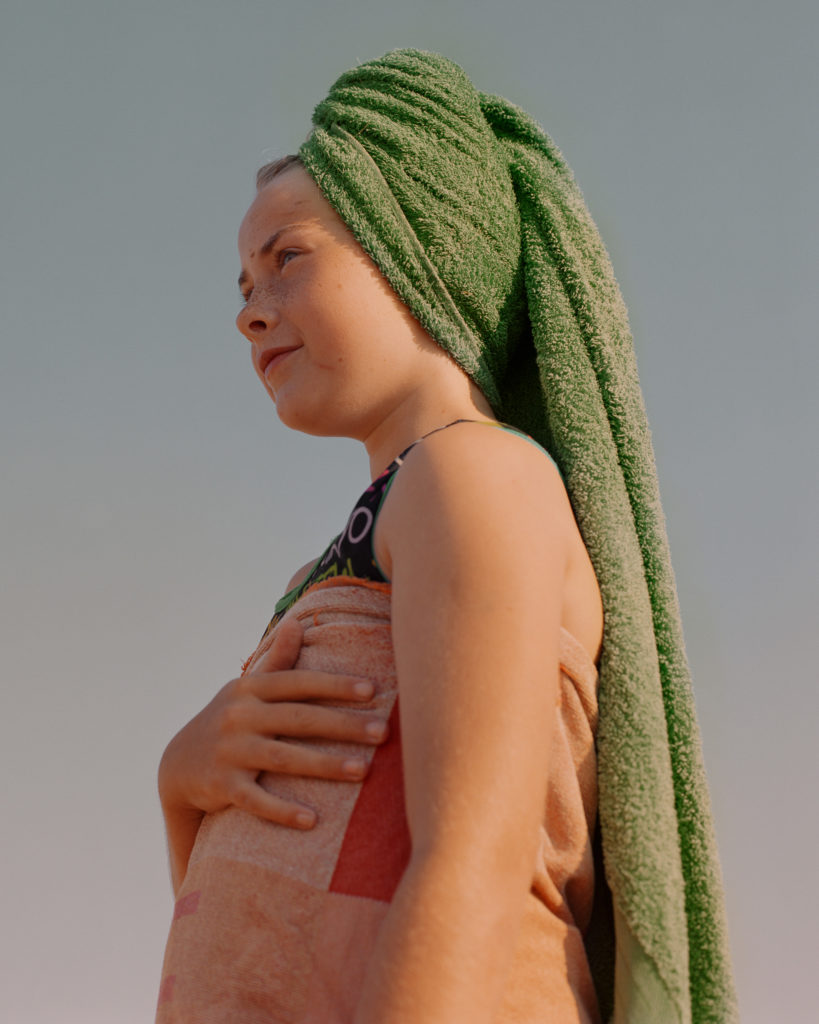
How do you intend for the viewer to respond to A Big Fat Sky? Personally, when I see these images I feel a wave of calm and nostalgia, reminiscing my childhood beach holidays along the Suffolk and Norfolk coast. Seeing landscapes that are quite familiar to me. While also on the other hand I note how these familiar backdrops are changing, and falling behind. Is this a response that you intended?
It’s really interesting to hear what you get from the work, and I’m glad that it reminds you of your experiences of the coast. As I mentioned before, I really just wanted to show this part of the country in a different way - I wanted the places and people to look familiar, but for them to feel more like how I remember them as a kid. I really wanted to celebrate the coast and not make fun of it.
A lot of your imagery revolves around portraiture, not just in A Big Fat Sky but also for example your project Burgess Park. How do you approach the subjects? Do you integrate yourself and make deeper connections, or operate as more of an outsider taking a photograph and moving on, so to speak? And does the approach vary from subject to subject/ project to project?
Portraiture is a big part of what I do, and I think it may always play an important role in my practice. My relationship to the subjects varies from person to person, and project to project. I always keep in touch with everyone to an extent - I’ll send them the picture and thank them for their time. Sometimes that will be that, and other times we’ll keep talking for years. Other than friends or family, I hadn’t ever returned to take a portrait of the same person twice. I was always more interested in serendipitous moments, where I would bump into someone at just the right time, and everything would come together perfectly. The idea of going back and trying to create a moment with someone somehow felt disingenuous and uncomfortable to me. I am currently working on something new where this isn’t the case, and I have been taking multiple pictures of one person in particular. I’ve formed a really good relationship with him, and I can see now how this way of working can really help to tell a deeper story.
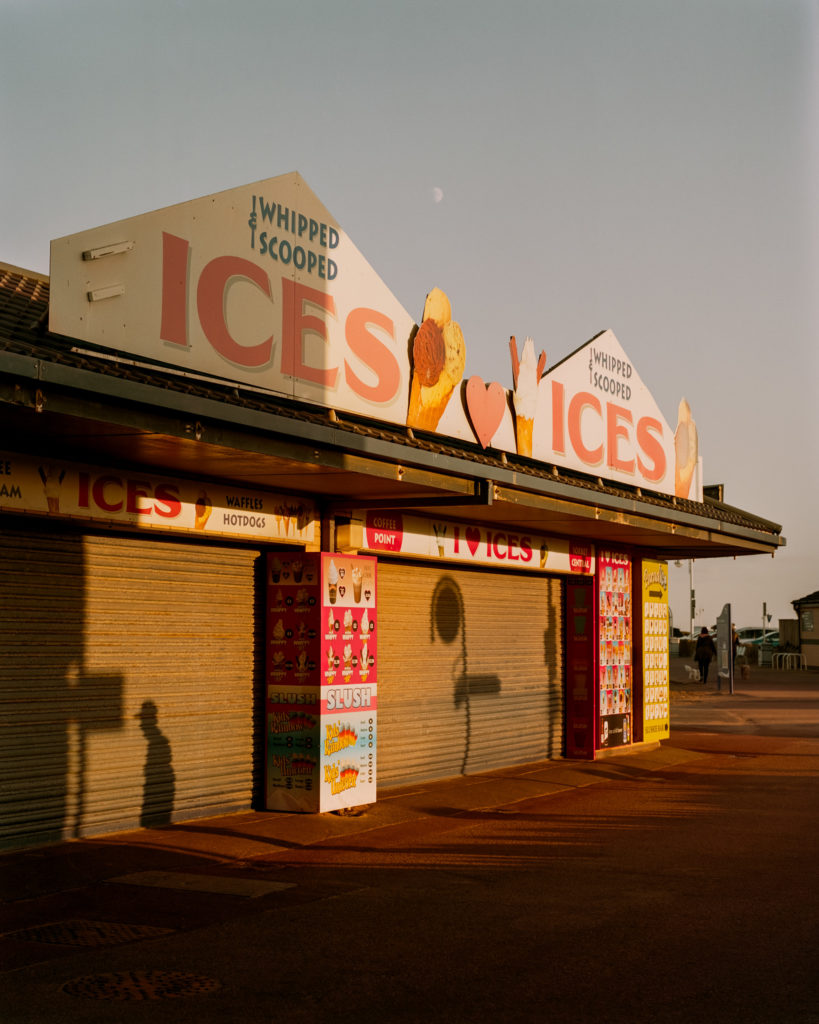
Where did the name A Big Fat Sky come from?
It’s from the first line of a poem by John Cooper Clarke, called ‘Our Coastal Poem’. It’s a lovely poem and sums up a lot of the ideas of the project. After photographing a lot in London, the title really summed up my experience of shooting on the coast.
What is next for both this project and yourself?
Whilst making this work I came across another story that I’m currently working on. I loosely touched on it within this project, but I felt like it needed more focus and much more time to really do it justice. I see it as a book project, which is exciting as it will be my first one. I’m keeping it quite close to my chest for the time being, as it’s still evolving a lot. I’m enjoying doing more research and revisiting people and places multiple times, rather than just gliding through as I have before. It feels good. I think it’s a step in the right direction.
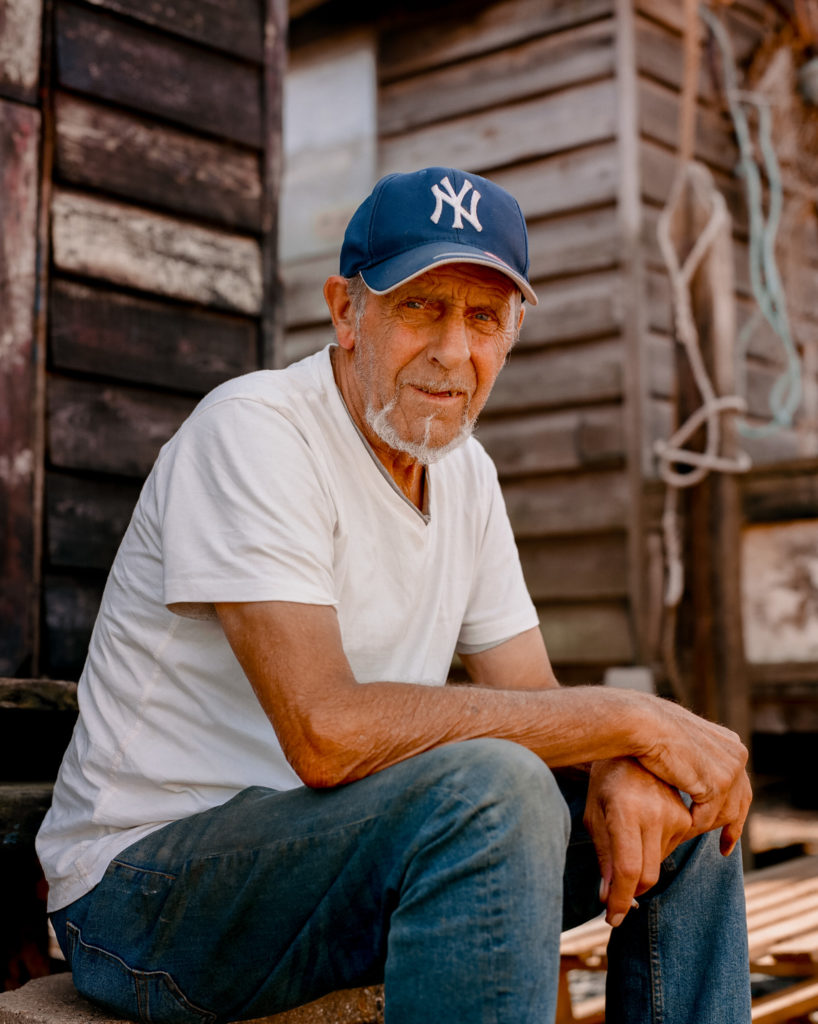
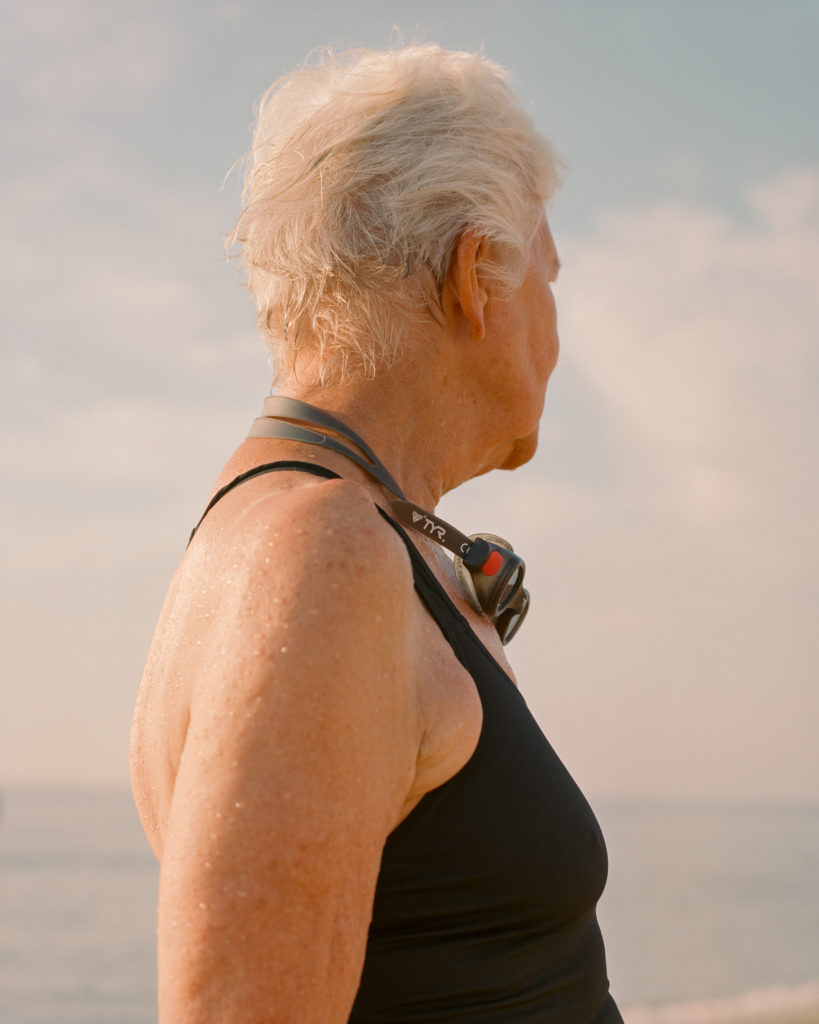
To see more of Max’s work, visit https://maxmiechowski.com/
Words and Interview by Alice Sophie Turrell
Leave a Reply